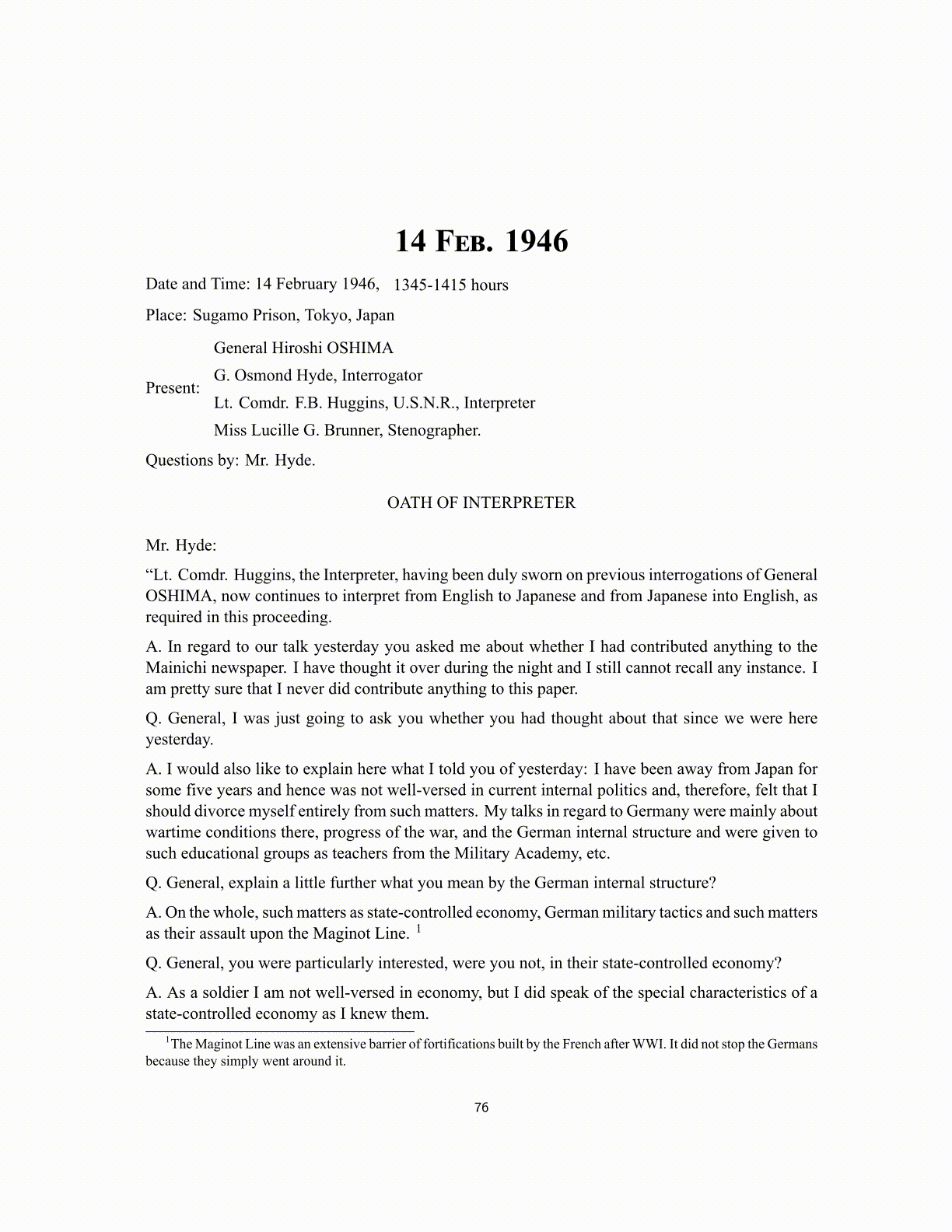
14 FEB. 1946 Date and Time: 14 February 1946, 1345-1415 hours Place: Sugamo Prison, Tokyo, Japan Present: General Hiroshi OSHIMA G. Osmond Hyde, Interrogator Lt. Comdr. F.B. Huggins, U.S.N.R., Interpreter Miss Lucille G. Brunner, Stenographer. Questions by: Mr. Hyde. OATH OF INTERPRETER Mr. Hyde: “Lt. Comdr. Huggins, the Interpreter, having been duly sworn on previous interrogations of General OSHIMA, now continues to interpret from English to Japanese and from Japanese into English, as required in this proceeding. A. In regard to our talk yesterday you asked me about whether I had contributed anything to the Mainichi newspaper. I have thought it over during the night and I still cannot recall any instance. I am pretty sure that I never did contribute anything to this paper. Q. General, I was just going to ask you whether you had thought about that since we were here yesterday. A. I would also like to explain here what I told you of yesterday: I have been away from Japan for some five years and hence was not well-versed in current internal politics and, therefore, felt that I should divorce myself entirely from such matters. My talks in regard to Germany were mainly about wartime conditions there, progress of the war, and the German internal structure and were given to such educational groups as teachers from the Military Academy, etc. Q. General, explain a little further what you mean by the German internal structure? A. On the whole, such matters as state-controlled economy, German military tactics and such matters as their assault upon the Maginot Line. 1 Q. General, you were particularly interested, were you not, in their state-controlled economy? A. As a soldier I am not well-versed in economy, but I did speak of the special characteristics of a state-controlled economy as I knew them. 1 The Maginot Line was an extensive barrier of fortifications built by the French after WWI. It did not stop the Germans because they simply went around it. 76